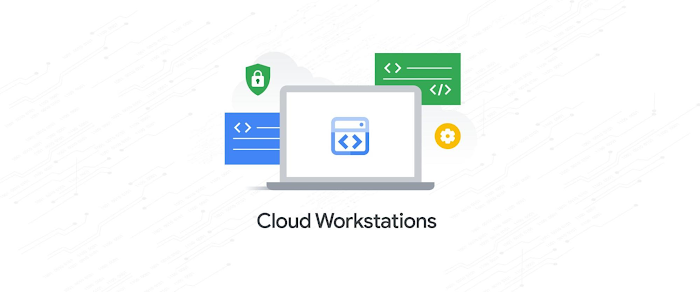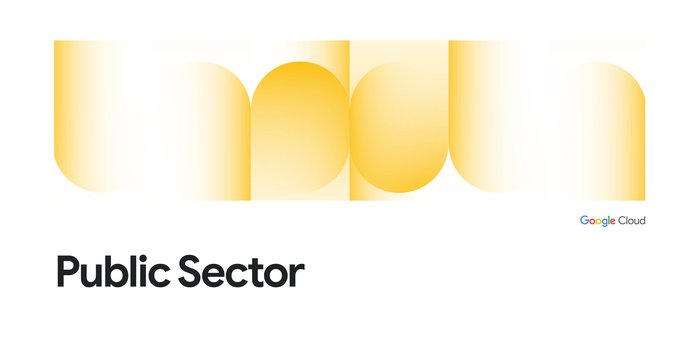Proven Here First: ManTech Leads the Way to Google Workspace
Troy Bertram
Managing Director, Google Public Sector
Mike Uster
CIO/CTO, ManTech
ManTech, a high tech, high-end engineering and cyber provider to the federal government, is making the move to Google Workspace. The 54-year old global tech company, with the history and expertise in bringing Digital to the Mission® with the best solutions and mission-focused technology to the federal community, is partnering with Google Public Sector to move its 9,800+ ManTech personnel to Google Workspace. This initiative empowers ManTech to bring best-in-class collaborative, cloud-based software to their workforce and to every branch of the federal government in supporting critical mission needs.
To learn more about ManTech’s decision and process behind Google Workspace, Troy Bertram, Managing Director of Google Public Sector partner sales, sat down with ManTech’s CIO/CTO Mike Uster and ManTech’s Business Sector General Managers - David Hathaway (Defense); Adam Rudo (Intelligence) and Stephen Deitz (Federal Civilian).
Bertram: Thanks for taking the time to speak with me today, Mike, David, Adam and Stephen. Can you tell us a bit more about ManTech – what’s your company’s mission - and how does your organization uniquely support the government services marketplace?
Uster: As a trusted partner of the federal government, we specialize in sophisticated technology solutions ranging from Cognitive Cyber to Analytics & AI, high-end digital engineering, Data at the Edge and Enterprise Cloud – all very important to safeguarding national security and advancing the government's core mission of achieving IT modernization.
Deitz: Our commitment to great talent and innovative solutions is key to ManTech’s strategic objective of solving government’s toughest challenges – effectively and cost-efficiently.
Bertram: What motivated ManTech to bring Google Workspace into its IT portfolio?
Hathaway: Innovation is part of our DNA. In fact, ManTech will be the first federal systems integrator moving into Google Workspace. The timing of our adoption aligns to the Department of the Army and other government customers moving to Google Workspace. End Result: Addressing our customers’ mission needs in ways that only ManTech can.
Deitz: We view Google Workspace as an important addition to our initial work with Google Cloud, which delivers hyperscale analytics, high throughput and air-tight security for agencies charged with safeguarding national and homeland security, as well as meeting the technology needs of Federal Civilian agencies that serve our citizenry.
Bertram: What were the risks (and rewards) you considered with this migration?
Uster: Reward can be summarized in three words: simplicity, flexibility and interoperability. There’s also a wave of next-generation workers who grew up using Google products and services like Gmail, Docs, and Sheets. The tools are simple and intuitive. For ManTech users - and government alike - there’s really minimal training required. We believe using these Google tools will help us and the federal government attract and retain talent while reaping cost savings.
Hathaway: The U.S. government spans some 440 agencies and four million employees. Over time, agencies have evolved from the era of mainframe hardware or “big iron” to PCs, laptops, the Internet, email, smartphones and other advances – but at different paces, approaches and time frames. Google Workspace provides a rich variety of solutions that uniformly advance IT and communications for each agency – and help ensure interoperability between diverse agencies that may be tasked with integral goals and agendas in a secure environment.
Bertram: How did security factor into your decision making for using Google Workspace?
Uster: We knew any solution we adopted needed to be FedRAMP High. Now that Google Workspace is FedRAMP High and has earned Department of Defense’s Impact Level 4 (IL4) authorization, the decision to switch was easy. With Google Workspace being cloud-native, this also ensures that our users and data remain secure - no matter where our users are.
Bertram: Can you tell us more about how you made the move to Google Workspace?
Uster: ManTech’s philosophy and innovation approach when it comes to introducing new technologies to our customers is “proven here first.” We offer innovation and capabilities for our customers’ national and homeland security missions, which we have built into our enterprise, have tested them, and gained significant insight into optimizing performance and security.
We started small - with less than a hundred Google Workspace licenses, which we set up in a second ManTech network. We ran this pilot for about 18 months to make sure we worked out the kinks and could transition smoothly before implementing more broadly or recommending Google Workspace to our customers. Our “tested here first” approach gives us firsthand knowledge of the digital solutions we bring to our customers, ensuring we bring the best options to their environments.
Bertram: We know building cultures of innovation within the ManTech workforce – and government more broadly – is an important initiative for you. How do you envision Google Workspace will help you achieve this?
Deitz: Innovative culture is a signature characteristic of both companies. In ManTech’s case, it dates all the way back to the day we opened our doors for business– and has grown even stronger and broader over the years. If you look at missions around the world, ManTech is involved; we support U.S. government customers in many countries. The same applies to Google and its leadership in technology advancement everywhere. We have strengths that others can't match.
Uster: Google Workspace’s cloud-native, flexible and intuitive tools create frictionless environments for users. And with no friction, people are able to focus more on innovating rather than figuring out software.
Bertram: As you mentioned earlier, the U.S. Army recently deployed Google Workspace, procuring licenses for up to 250,000 personnel. How did the U.S. Army's deployment influence your decision?
Hathaway: As a partner to government, and in my case the Department of Defense, ManTech’s goal is to be where our customers are – land, sea, air, space, cyber space and everywhere in between. As a first mover in the government contracting space like the U.S. Army was in the government industry, we are proud to share that distinction. With both of us now being Google Workspace users, we are looking at how we can work more collaboratively with the U.S. Army in a secure environment. Bringing our environments together gives us a geometric accelerator to propel collaboration.
Bertram: How will Google Workspace help support your business growth and engagement within the federal community?
Rudo: Our partnership with Google is an important part of ManTech’s hybrid environment approach. We aim to be adept in many productivity tool environments – and to guarantee their reliability and security by first testing it ourselves.
Hathaway: ManTech’s work in Zero Trust is one example. Our customers trust our work in this area because it’s been battle-tested here at ManTech. The same measure applies to Google Workspace.
Bertram: What advice do you have for anyone leading their own transformation initiatives? And specifically, what advice do you have for gaining buy-in and successful adoption of Google Workspace?
Uster: Be bold and start small. Never settle – always go for the best, whatever it takes. ManTech and Google have proved themselves adept at succeeding in areas that others deem “Mission Impossible.” That’s what makes us special to our customers. That’s what has set ManTech apart from the industry norm since our founding in 1968.
Google Workspace is a proven tool within the commercial market and the public sector. Now that it’s FedRAMP High for the federal space, it’s a viable commodity for the federal government and defense contractors. So buy a small set of licenses and try it out yourself.
Special thanks to: ManTech General Managers: David Hathaway - Defense Sector, Adam Rudo - Intelligence Sector, Stephen Deitz - Federal Civilian Sector


